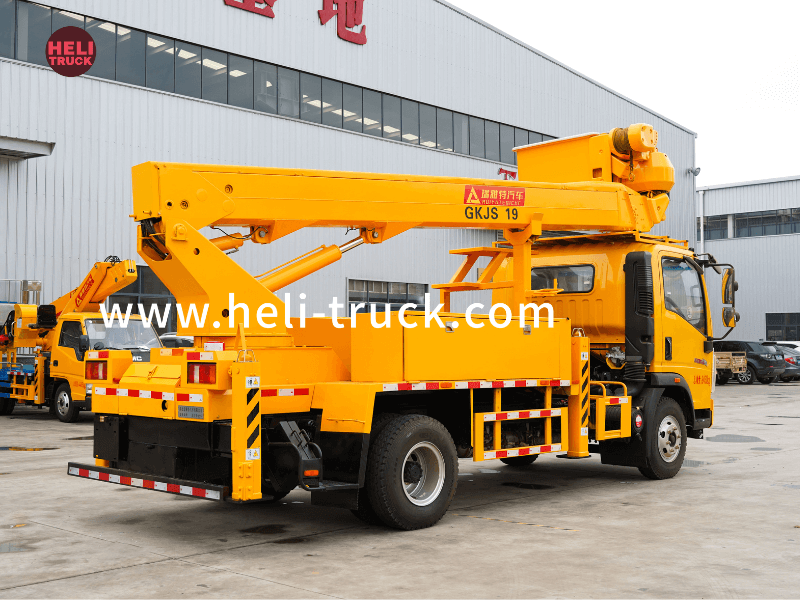Maximizing Efficiency and Sustainability with Seasonal Garbage Compactor Trucks

Introduction:
Garbage compactor trucks play a crucial role in waste management systems worldwide, efficiently collecting and compacting solid waste for transport to disposal sites. However, in regions with distinct seasonal variations in waste generation, the utilization of garbage compactor trucks can be optimized by implementing seasonal strategies. This article explores the benefits and considerations of using garbage compactor trucks for seasonal purposes, highlighting the potential for maximizing efficiency and sustainability in waste management practices.
1. Overview of Garbage Compactor Trucks
Garbage compactor trucks, also known as refuse trucks or waste collection vehicles, are specially designed vehicles equipped with compactors to compress solid waste materials. These trucks are essential for collecting residential, commercial, and industrial waste efficiently, reducing the volume of waste and minimizing the number of trips required for disposal. Garbage compactor trucks come in various sizes and configurations, including rear-loading, side-loading, and front-loading models, catering to different waste collection needs.
2. Importance of Seasonal Waste Management
Seasonal variations in waste generation are common in many regions, with factors such as holidays, festivals, tourist influx, and weather conditions influencing the amount and types of waste produced. Efficient waste management during peak seasons is essential to prevent overflowing bins, littering, and environmental hazards. By adapting waste collection strategies to seasonal patterns, municipalities and waste management companies can improve service quality, reduce operational costs, and enhance overall sustainability.
3. Benefits of Seasonal Garbage Compactor Trucks
Utilizing garbage compactor trucks for seasonal waste management offers several benefits that contribute to improved efficiency and sustainability:
3.1. Increased Capacity: Seasonal garbage compactor trucks can accommodate higher volumes of waste during peak periods, ensuring timely collection and preventing waste overflow in bins and public areas.
3.2. Enhanced Efficiency: By deploying specialized garbage compactor trucks for seasonal use, waste collection routes can be optimized to cover high-demand areas more frequently, reducing collection times and operational costs.
3.3. Improved Waste Compression: Seasonal compactor trucks are equipped with advanced compaction systems that can effectively compress different types of waste, maximizing the truck's capacity and reducing the frequency of trips to disposal sites.

3.4. Tailored Collection Schedules: Seasonal garbage compactor trucks allow waste management authorities to adjust collection schedules based on peak demand periods, ensuring timely and efficient waste removal services for residents and businesses.
4. Considerations for Seasonal Garbage Compactor Trucks
While seasonal garbage compactor trucks offer numerous advantages, several considerations must be taken into account when implementing seasonal waste management strategies:
4.1. Fleet Flexibility: Waste management companies need to maintain a flexible fleet of garbage compactor trucks that can be deployed or scaled up during peak seasons to meet increased demand.
4.2. Staff Training: Proper training of drivers and waste collection personnel is crucial to ensure the safe and efficient operation of seasonal garbage compactor trucks, especially when handling higher volumes of waste.
4.3. Maintenance and Upkeep: Regular maintenance and servicing of seasonal garbage compactor trucks are essential to ensure optimal performance and prolong the lifespan of the vehicles, reducing downtime and repair costs.
4.4. Environmental Considerations: Seasonal waste management practices should prioritize environmental sustainability by promoting recycling, composting, and other waste diversion initiatives to minimize the amount of waste sent to landfills.
5. Case Studies and Best Practices
Several municipalities and waste management companies have successfully implemented seasonal garbage compactor truck programs to improve waste collection efficiency and service quality. Case studies highlighting best practices and successful strategies can provide valuable insights for other regions looking to optimize their waste management systems.
5.1. City A: City A implemented a seasonal garbage compactor truck program during the summer months to address the influx of tourists and increased waste generation. By deploying https://www.heli-truck.com and adjusting collection schedules, the city reduced waste overflow incidents and improved cleanliness in public areas.
5.2. Waste Management Company B: Waste Management Company B introduced a fleet of specialized compactors for holiday seasons, such as Christmas and New Year's, to manage the surge in residential waste. The company offered residents convenient waste collection options and promoted recycling initiatives to reduce the environmental impact of increased waste generation.
6. Future Trends and Innovations
As waste management practices continue to evolve, advancements in technology and innovation are shaping the future of garbage compactor trucks for seasonal use. Emerging trends such as smart waste collection systems, route optimization software, and electric-powered compactors are revolutionizing the efficiency and sustainability of waste management operations.
6.1. Smart Waste Collection Systems: Integrated sensors and monitoring devices in garbage compactor trucks enable real-time tracking of waste levels, route optimization, and performance analytics, enhancing operational efficiency and data-driven decision-making.
6.2. Route Optimization Software: Advanced route planning software uses artificial intelligence and machine learning algorithms to optimize waste collection routes, minimize travel time, and reduce fuel consumption, leading to cost savings and environmental benefits.
6.3. Electric-Powered Compactors: The adoption of electric-powered garbage compactor trucks is gaining traction as a sustainable alternative to traditional diesel vehicles, offering zero-emission operation, reduced noise pollution, and lower maintenance costs over the vehicle's lifespan.
7. Conclusion
Seasonal garbage compactor trucks play a vital role in optimizing waste management practices by addressing peak demand periods and enhancing operational efficiency. By leveraging the benefits of specialized compactor trucks, waste management authorities can improve service quality, reduce environmental impact, and promote sustainable waste management practices. As municipalities and waste management companies continue to innovate and adapt to changing waste generation patterns, the use of seasonal garbage compactor trucks will remain a key strategy for maximizing efficiency and sustainability in waste collection and disposal processes.
